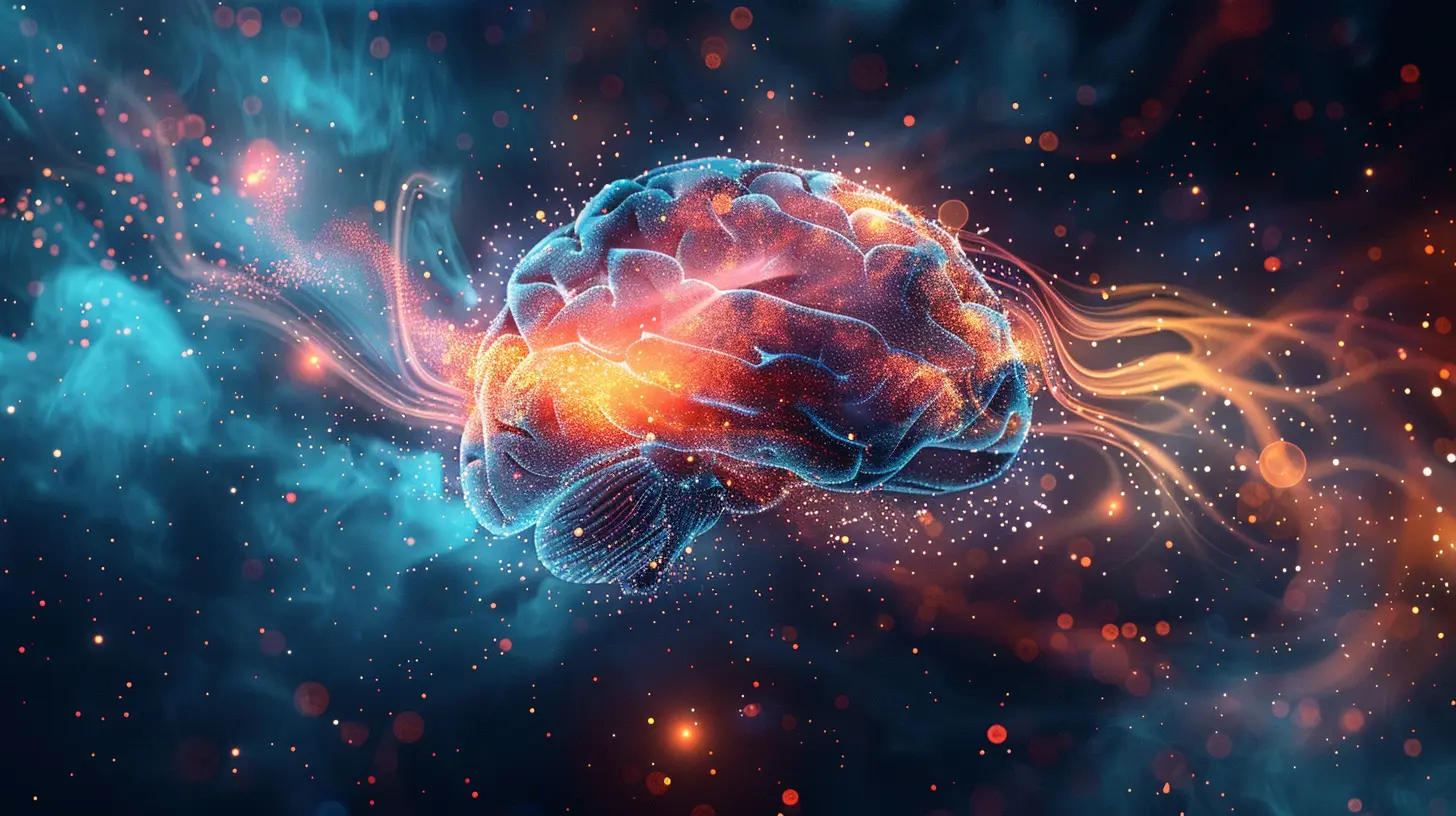The Neuroscience Behind Emotional Intelligence
17 May 2025
Buckle Up, Because We're About to Get Inside Your Brain
Emotional intelligence (EI) isn't just some fancy corporate buzzword or an excuse for therapists to charge you $200 an hour. It's an actual, science-backed superpower that can make or break your relationships, career, and overall happiness. But what if I told you that emotional intelligence isn’t just about being “nice” or “empathetic”? It’s actually hardwired into your brain.
Yeah, you heard me right. There's a whole neuroscience circus happening upstairs that dictates how well you manage emotions—both yours and everyone else's. So, let's dive into the fascinating world of neuroscience and dissect what's really going on in that head of yours.

What the Heck Is Emotional Intelligence, Anyway?
Before we get all science-y, let’s break it down. Emotional intelligence is basically your ability to:- Recognize, understand, and manage your own emotions
- Tune into and respond appropriately to other people’s emotions
- Use this emotional awareness to navigate social situations like a pro
In plain English? It’s the difference between losing your cool and handling life’s curveballs with grace. It’s what makes someone a great leader, a stellar partner, and that one friend you always go to when life’s a mess.

The Brain Regions Running the Emotional Intelligence Show
Now, let’s get nerdy. EI isn’t just some mystical force—it stems from specific regions in your brain. Let’s break it down:1. The Amygdala: Your Emotional Alarm System
Meet your amygdala, a small, almond-shaped structure deep in your brain that acts like an overprotective bodyguard. It processes emotions—especially fear, anger, and stress—before you even realize what’s happening.Ever snapped at someone and immediately regretted it? Blame your amygdala. It’s your brain’s "fight-or-flight" manager, and sometimes, it reacts before logic steps in.
But hold up! People with high EI have a secret weapon: they know how to regulate their amygdala response. Instead of instantly flipping out, they engage other brain regions to keep their emotions in check.
2. The Prefrontal Cortex: The Wise Decision-Maker
Thankfully, we also have the prefrontal cortex—our brain’s CEO. This part, located behind your forehead, helps you regulate those knee-jerk emotional reactions.Think of it as the wise old grandparent who tells your amygdala to chill. It helps you:
- Think before you act
- Control impulsive behaviors
- Consider long-term consequences
People with strong emotional intelligence have a well-developed prefrontal cortex that keeps their emotions from hijacking their actions. Talk about powerful!
3. The Insula: Your Empathy Headquarters
Here’s where things get interesting. The insula is the part of your brain responsible for picking up on how others feel. It helps you sense emotions in people by interpreting their tone, facial expressions, and body language.Ever felt someone’s sadness before they even said a word? That’s your insula doing its thing. People with strong EI have a hyperaware insula that helps them connect with and respond to other people’s emotions effectively.
4. The Hippocampus: The Memory Keeper
Why do we sometimes overreact to certain situations? Well, your hippocampus stores emotional memories, and when similar situations arise, it triggers past emotions. That’s why an old wound can open up when faced with a similar stressor.However, emotionally intelligent people recognize emotional patterns and respond with awareness instead of reactivity. They don't let past baggage dictate their present reactions.

The Science of Emotional Regulation
Alright, science squad, let’s talk about emotional regulation—the real MVP of emotional intelligence. How the heck do some people stay calm under pressure while others explode like a shaken soda can?Neurotransmitters Play a Huge Role
Your brain's chemical messengers—aka neurotransmitters—help regulate emotions. Here are the big players:- Dopamine: The "feel-good" chemical that enhances motivation and positivity
- Serotonin: The mood stabilizer that keeps anxiety and stress in check
- Oxytocin: The bonding hormone that strengthens trust and connection in relationships
When these chemicals are balanced, you handle emotions like a champ. But if they’re out of whack? Say hello to mood swings, irritability, and poor decision-making.
Mindfulness and EI: A Perfect Match
Want to boost emotional intelligence? Then start practicing mindfulness. Neuroscientific studies show that mindfulness strengthens connections between the amygdala and prefrontal cortex, helping you regulate emotions more effectively.It’s like giving your brain a much-needed software update, making you less reactive and more in control. So, maybe it’s time to finally give meditation a shot?

The Link Between Emotional Intelligence and Success
Here’s a reality check: Your IQ might get you hired, but your EI will get you promoted. Research proves that people with higher emotional intelligence:- Have better leadership skills
- Navigate workplace conflicts more effectively
- Enjoy healthier relationships
- Handle stress like a boss
Companies even prioritize EI over technical skills when hiring because—let’s be real—no one wants to work with a genius who lacks basic social skills.
Can Emotional Intelligence Be Improved?
Absolutely! Your brain isn’t set in stone—it’s adaptable (thanks to neuroplasticity). Just like you hit the gym to build muscles, you can train your brain to become more emotionally intelligent.Practical Strategies to Boost EI
1. Pause Before Reacting – Give your prefrontal cortex time to step in before making impulsive decisions.2. Practice Active Listening – Instead of waiting for your turn to talk, truly listen. It strengthens emotional connections.
3. Name Your Emotions – Labeling emotions reduces their intensity and helps you process them rationally.
4. Engage in Self-Reflection – Regularly ask yourself, “How did I handle that situation? What could I do better next time?”
5. Develop Empathy – Try putting yourself in others' shoes and understand their emotions without judgment.
6. Reduce Stress – Chronic stress weakens your brain’s ability to manage emotions. Prioritize self-care.
Final Thoughts: Your Brain, Your Superpower
So, there you have it—emotional intelligence isn’t just about being emotionally “smart.” It’s a complex, brain-driven skill set that separates the emotionally mature from the drama magnets.By understanding how your brain processes emotions, you gain the power to master them instead of letting them control you. And honestly, who wouldn’t want that kind of superpower?
Time to flex that emotional intelligence and show the world who's in charge—because trust me, your brain is more capable than you think.
all images in this post were generated using AI tools
Category:
Emotional IntelligenceAuthor:

Ember Forbes
Discussion
rate this article
3 comments
Judith McGee
Oh, great! Just what I needed—more brain science to explain why I cry at commercials. Can’t wait to unlock the secrets of my emotions while binge-watching cat videos. Genius level unlocked! 🎉
May 21, 2025 at 3:48 AM

Ember Forbes
Glad you’re excited! Emotions are fascinating, and science can help us understand them better—even during those heartwarming cat videos! 🐾✨
Fatima Wheeler
Ah, so that’s why I can’t remember where I put my keys again!
May 19, 2025 at 4:53 AM

Ember Forbes
It's interesting how stress and emotions can affect memory! Staying calm might help keep track of your keys.
Zeno Reese
This article beautifully illustrates the intricate connection between neuroscience and emotional intelligence. It highlights how understanding our brain's mechanisms can enhance our emotional awareness, ultimately fostering deeper connections and better communication in our lives.
May 18, 2025 at 2:47 AM

Ember Forbes
Thank you for your insightful comment! I'm glad you found the connection between neuroscience and emotional intelligence compelling. Understanding our brain's mechanisms truly can enhance our emotional awareness and improve our relationships.



